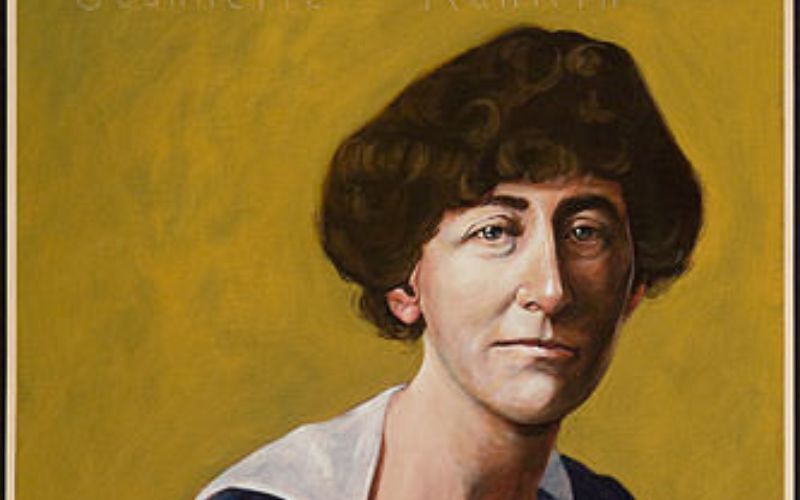Suffragette, Congresswoman, Pacifist (1880-1973)
Women remind me of the cows on our ranch in Montana. A cow has a calf and after a while a man comes along and takes the calf away. She bawls for a while, then goes on and has another calf. If we had 10,000 women willing to go to prison, that would end the war. We’ve had 10,000 women sit back and let their sons be killed.
Additional Quotes by Jeannette Rankin
As a woman I can't go to war, and I refuse to send anyone else.
I want to stand by my country, but I cannot vote for war.
If I had my life to live over, I would do it all again, but this time I would be nastier.
It is unconscionable that 10,000 boys have died in Vietnam. If 10,000 American women had mind enough they could end the war, if they were committed to the task, even if it meant going to jail.
Killing more people won't help matters.
Men and women are like right and left hands; it doesn't make sense not to use both.
Small use it will be to save democracy for the race if we cannot save the race for democracy.
There can be no compromise with war; it cannot be reformed or controlled; cannot be disciplined into decency or codified into common sense.
War is the slaughter of human beings, temporarily regarded as enemies, on as large a scale as possible.
We're half the people; we should be half the Congress.
What one decides to do in crisis depends on one's philosophy of life, and that philosophy cannot be changed by an incident. If one hasn't any philosophy in crises, others make the decision.
Biography
The eldest child of a Montana rancher and a schoolteacher, Jeannette Rankin would vote in Congress for peace before most American women could vote anywhere. After graduating from Montana State University, Rankin taught school, designed furniture, and tried social work. Then women’s suffrage ignited her passion, and she became legislative secretary of the National American Woman Suffrage Association. Her efforts led to Montana women winning the right to vote in 1914, five years before the Nineteenth Amendment guaranteed that right nationally.
In 1916 Rankin was elected to Congress as a Republican. Just four days into her term, she drew national attention by voting (along with fifty-five men) against entering World War I. ““I want to stand with my country, but I cannot vote for war,” she said. She later voted for suffrage, civil liberties, equal pay, and child welfare, but her anti-war vote kept her from being re-elected in 1920.
Working for peace became Rankin’s life. “There can be no compromise with war,” she wrote. “[I]t cannot be reformed or controlled; cannot be disciplined into decency or codified into common sense, for war is the slaughter of human beings, temporarily regarded as enemies, on as large a scale as possible.” She held leadership roles in the Women’s International League for Peace and Freedom and other groups, and she later traveled to India to learn directly from Gandhi.
In 1940, Rankin ran for Congress on an isolationist platform, and Montana again sent her to Washington. After the attack on Pearl Harbor, she was the only member of Congress to vote against declaring war on Japan. Although editor William Allen White disagreed with her position, he wrote, “Probably a hundred men in Congress would have liked to do what she did. Not one of them had the courage to do it.”
In 1968 and 1970, days before her ninetieth birthday, Rankin returned to the nation’s capital to lead marches in protest of the Vietnam War.

